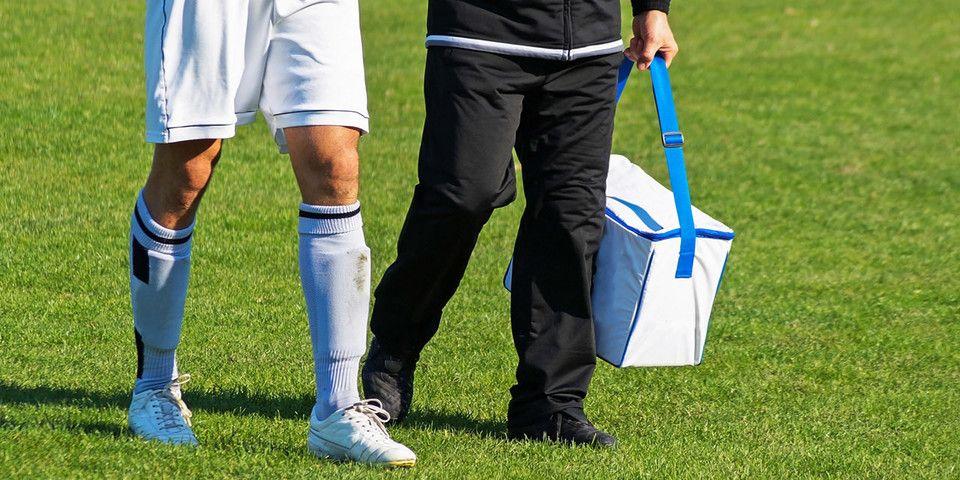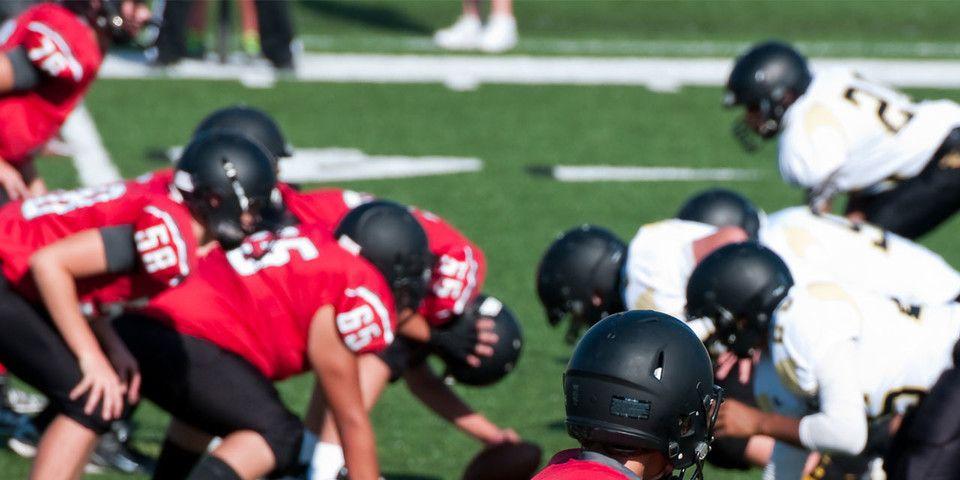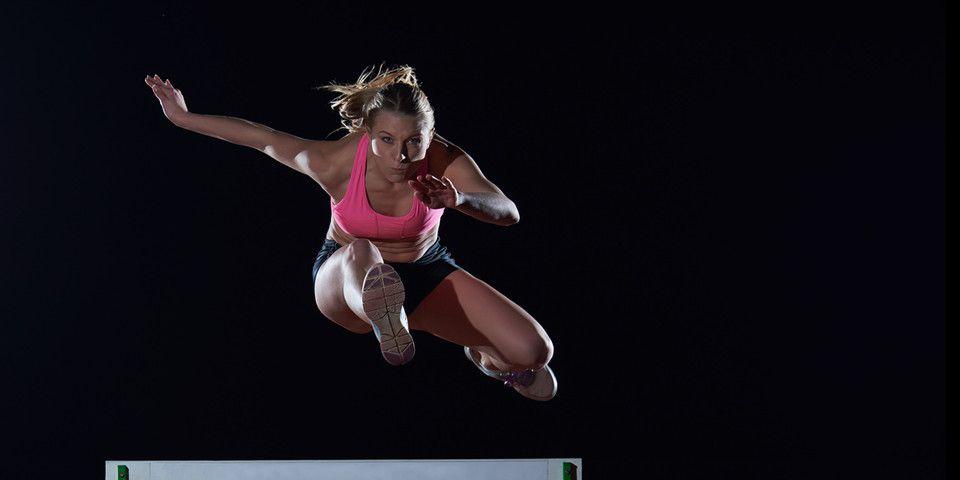3 Steps to Treating & Recovering from Soccer-Related Patellar Tendinitis
Don’t let patellar tendonitis keep you off the soccer field!
Soccer players, coaches, and parents are no strangers to the variety of knee problems that can trouble athletes of all ages and competition levels. If you’ve been around “the beautiful game” long enough, you know that a knee injury can mean a season lost or even a career compromised. That’s why it’s essential to understand how to prevent, identify, treat, and recover from knee conditions, including patellar tendonitis.
When you think of the kind of knee issues that are often seen in soccer players, what comes to mind? Of course, there’s the dreaded anterior cruciate ligament (ACL) tear, and there’s the gradual, but irritating onset of arthritis. But what about the lesser-known, but just as problematic condition known as patellar tendonitis (often called “jumper’s knee”)? Our sports medicine physicians here at Rothman Orthopaedic Institute have seen it all when it comes to knees. We’ve taken the opportunity to put together this helpful article for you so you can be informed and prepared. Keeping your knees healthy is paramount to staying out on the field and in the game!
First, let’s take a moment to review the reasons why patellar tendinitis may occur in soccer:
-
Basic overuse (repeated stress on the tendon from running, kicking, jumping, etc.)
-
Direct impact to the front of the knee from a tackle
-
Direct impact to the knee from striking a ball
Keep in mind that certain people are more susceptible to stress on the patellar tendon due to their anatomical makeup. The structure and alignment of the hips, knees, and feet all play a role in how the body absorbs impact in this particular area of the knee.
Identifying Patellar Tendonitis
Patellar tendonitis symptoms tend to show up as pain or tenderness either behind the kneecap or across the front of the knee where the cap attaches to the shin bone (which is where the tendon is located). Someone suffering from this condition may also find that there is localized swelling, and the pain often becomes worse while jumping, running or even walking (especially if walking up or down stairs).
For some people with mild tendonitis in the patellar tendon, these activities may still be possible, but they usually become more and more uncomfortable as the condition progresses. For those with more severe tendonitis, even bending or straightening the affected leg can be very painful.
Treating & Recovering from Patellar Tendonitis
-
As soon as a soccer player realizes that the tendon has become swollen or tender, an ice therapy routine should be observed for several days. This involves applying ice to the location for 20 to 30 minutes per day and repeating every 3 to 4 hours. During this time, it may also be helpful to take an anti-inflammatory medication and cease activity to give your knee a chance to truly recover from the strain of competition.
-
If, after 3 or 4 days, the pain has not be relieved by icing, the next step would be to a brace or band on the knee. Ask your doctor about a specific device called an “infra-patellar strap,” which helps to stabilize the knee, alleviate the stress on the tendon, and minimize inflammation. If you decide to continue playing through this injury, be sure to ask an athletic trainer to tape your knee appropriately for maximum protection.
-
The next step in a treatment process for more severe cases of patellar tendonitis would include a combination of physical therapy and possibly using PRP therapy. PRP refers to platelet rich plasma. This unique, cutting-edge treatment might help to restore damaged tissue. We filter the body’s own blood to obtain platelets that contain the growth factors that can potentially accelerate the healing process.
Because the types of treatments vary depending on the severity of each specific athlete’s case, patellar tendonitis recovery time will also vary among patients.
Preventing Patellar Tendonitis
Perhaps you are a soccer player who is not yet experiencing any symptoms of tendonitis, but you are looking for ways to be proactive in preventing this condition. First of all, we applaud you for taking the initiative to manage your health!
We believe that the best prevention measures for this particular injury are patellar tendonitis stretches. Like in the case of other potential knee related issues, the stronger your surrounding muscles are, the less likely you are to sustain a serious injury (and if you do, you’re more likely to recover faster). The large muscle groups that support the knee - specifically the quadriceps and the hamstrings - play a critical role in protecting the patellar tendon. For prevention of this and other knee injuries, complete the following stretches and strengthening exercises regularly.
-
Hamstring stretches
-
Jump rope
-
Lunges
-
Squats
-
Hip stretches
If you’ve landed on this article because you’re past the point of prevention and you know you need a diagnosis and treatment for what you believe to be patellar tendonitis, call Rothman Orthopaedic Institute today to set up an appointment with one of our sports medicine knee specialists. Visit us here or contact us at 1-800-321-9999.
Related Specialties
Related Conditions
Related Treatments
Related Programs
-

Athletic Training- Sport Medicine Outreach
Our Field Athletic Trainers provide direct sports medicine care to youth, high school, college and professional athletes. Rothman AT’s provide athletic training services throughout Southeastern PA to interscholastic high schools, colleges, as well as tournaments and special events.Read More -

Injury Prevention Program
The Injury Prevention Program at the Rothman Orthopaedic Institute is dedicated to the prevention of injuries from athletic participation, particularly youth sports.Read More -

Women’s Sports Medicine Program
The Women’s Sports Medicine Program at the Rothman Orthopaedic Institute is the first of its kind in the Philadelphia metro area and one of only several such programs specializing in the comprehensive care of the female athlete in the country.Read More




